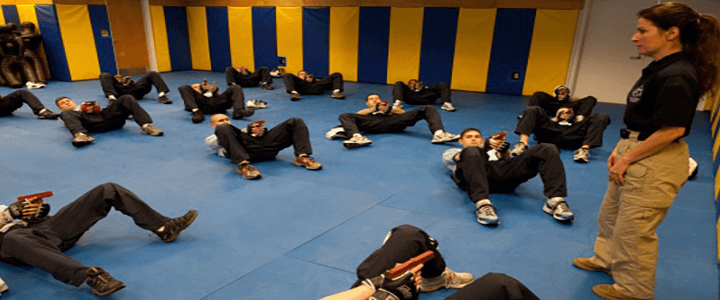Whether you work for the Secret Service or the Border Patrol, you need of a distinct, specific set of skills. While transitioning service members are often a great fit for the distinct missions of the Department of Homeland Security, not every veteran leaves military service with evasive driving skills, vessel boarding experience or advanced interviewing techniques.
Enter the Federal Law Enforcement Training Center (FLETC). It has its own zip code, and the unique mission of bringing together more than 90 different law enforcement organizations for training and instruction.
FLETC dates all the way back to 1960 when standardization trumped individual agency preferences. After 9/11, FLETC began reporting to the Department of Homeland Security (DHS), which better enabled the training center to touch more agencies focused on homeland security. Whether you have law enforcement goals, work with clients with law enforcement goals, or find yourself supporting a program that develops products or training for FLETC, it’s helpful to know a little more about this unique training center.
What is FLETC?
- FLETC’s mission is to train all those who protect the homeland.
- FLETC provides federal, state, local, and tribal law enforcement with vital training that is important to helping them carry out their duties and responsibilities.
- FLETC is the United State’s largest provider of law enforcement training and is actually not a single “center”, but rather a collection of four main centers.
- FLETC’s true value comes not just in the training courses and quality facilities they offer, but in the interagency collaboration between partners which results in “…efficiencies inherent in shared services, higher quality training, and improved interoperability.”
- On March 1, 2003, FLETC transferred to the Department of Homeland Security which ended over 3 decades of reporting to the Department of Treasury.
What Does FLETC Offer?
FLETC offers a robust training curriculum in areas including active shooters, forensics, driving skills, surveillance, vessel boarding and boat operations, medical, and leadership. The diversity of course offerings at FLETC is a reflection of the depth and breadth of the homeland security mission. It also demonstrates the career progression possible within many DHS organizations. If you have skills you’d like to learn or expand upon, and you’re already employed within a law enforcement organization, FLETC offers excellent opportunities to expand your skills and progress your career.
Where is FLETC?
FLETC has four main training centers. The FLETC Glynco, Ga. campus is the headquarters for FLETC and sits on 1,600 acres of land in southeast Georgia. In addition to classrooms, it has dormitories, support facilities, a dining hall, 18 firearm ranges, driver training ranges, an explosives range, and several other training structures including a 34-building “neighborhood”.
Other main training center locations are Artesia, N.M., Charleston, S.C., and Cheltenham, Md. FLETC also has a regional Maritime Law Enforcement Training Center (MLETC) in Los Angeles, Calif. FLETC also offers online training and is able to host individualized training at other national, and even international, locations.
FLETC role in law enforcement training
FLETC has established dozens of partnerships with law enforcement organizations across the Executive, Legislative, and Judicial branches of the federal government. FLETC also has robust partnerships with other independent agencies. The training center touches over 90 federal agencies. After 46 years, FLETC is now the largest law enforcement training agency. By providing training in areas common to all law enforcement officers, such as firearms, driving, tactics, investigations, and legal training, FLETC and partner agencies are finding quantitative and qualitative benefits from sharing services and increasing the interoperability among law enforcement agencies, which was a key takeaway post-9/11.
Whether your career goals include intelligence analyst or cybercrime or first responder work, FLETC has a range of training options to offer.




